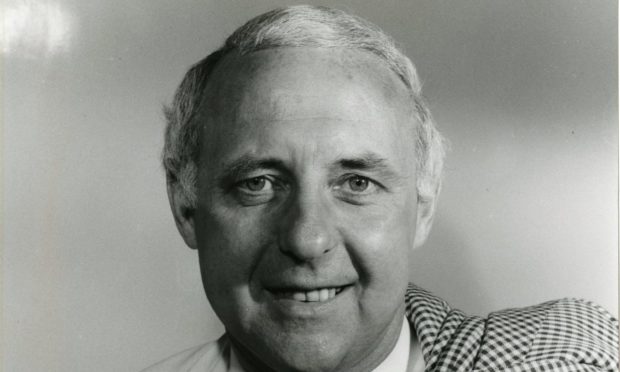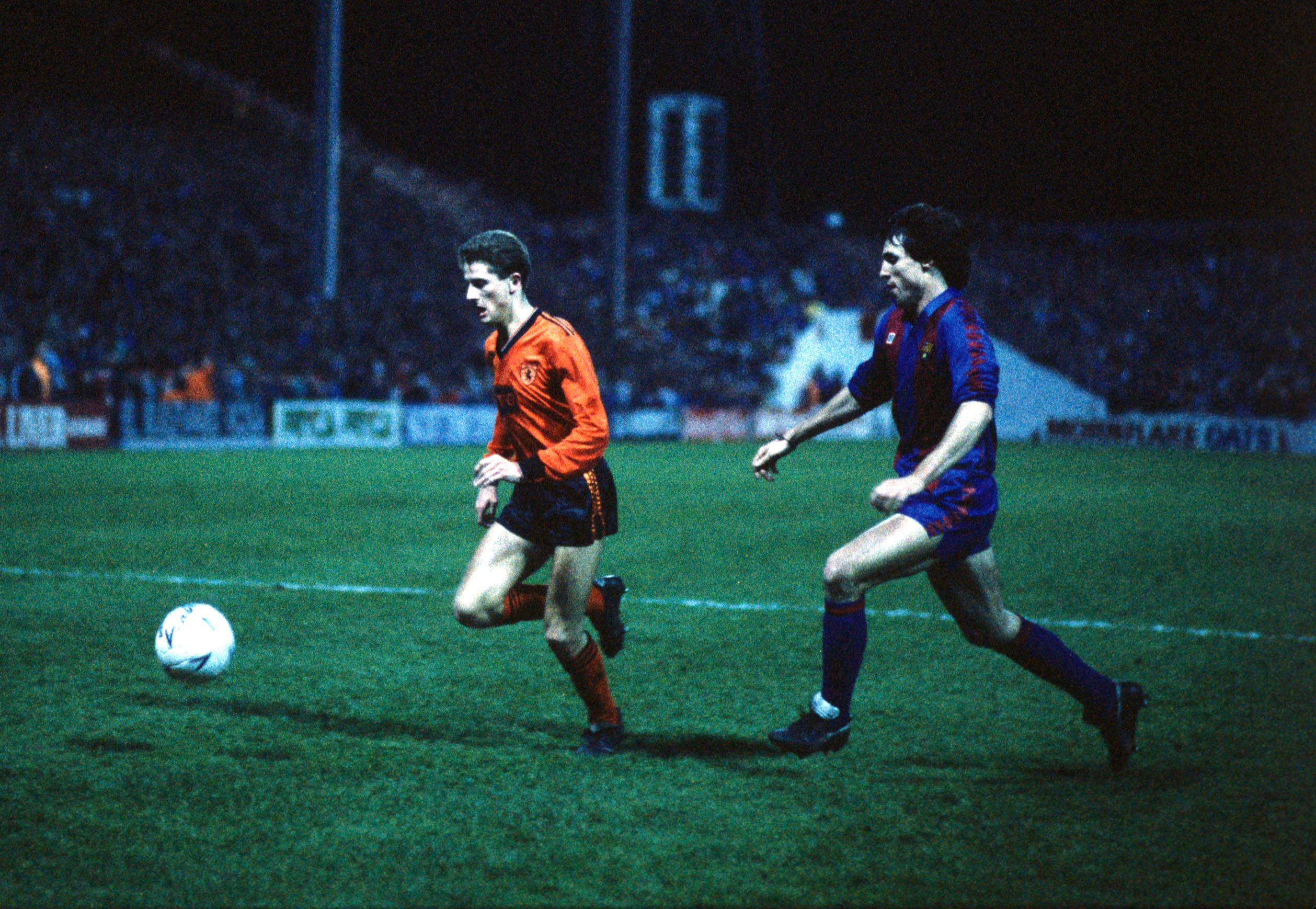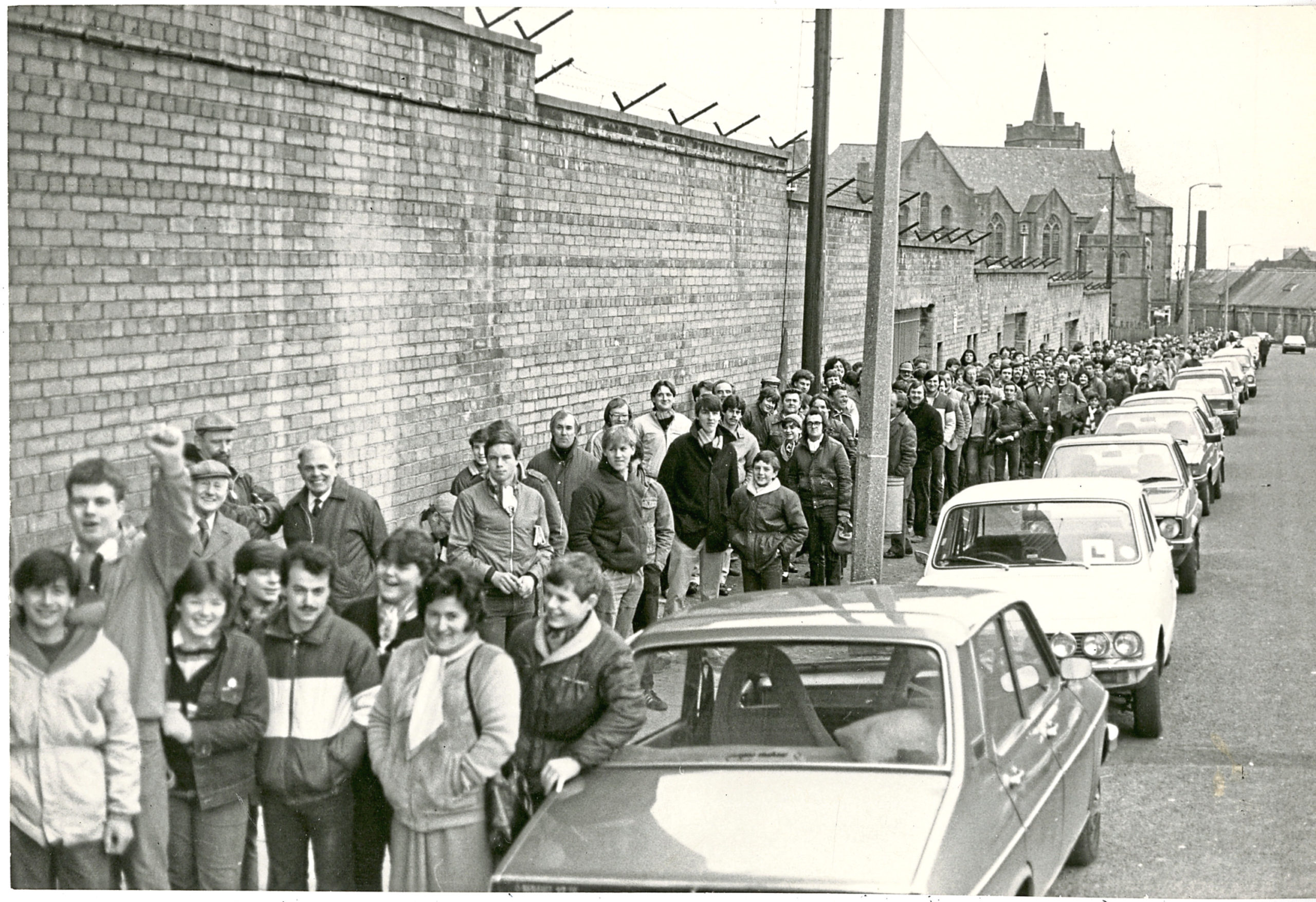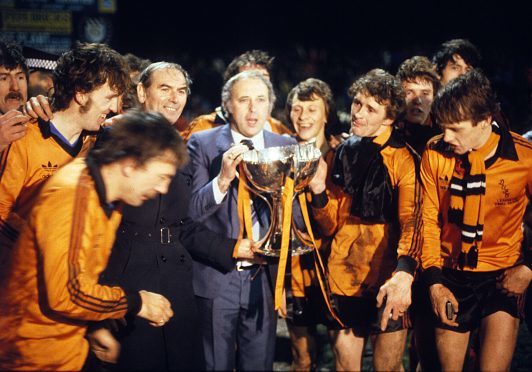Jim McLean may have revelled in Dundee United successfully jousting with giants and been affectionately known by some as “Wee Jim” but he was a towering figure.
Cut from the same Scottish working-class steel and stone that produced Jock Stein, Sir Matt Busby, Bill Shankly and his one-time rival but also friend Sir Alex Ferguson, McLean was a footballing genius worthy of inclusion in the same sentence as those managerial greats.
McLean’s achievements as boss of the Tangerines were remarkable enough at the time but they look even more incredible viewed from today when finance is king in football and modest provincial clubs struggle to break through the money ceiling.
What he did was make his group of mainly Scots-born players, packed full of talent, believe they could beat the best, not only in their own country but right across Europe. When Paul Sturrock or Eamonn Bannon went onto the park, they thought they could better any team, not just because of their own ability but also because they knew that, in the dugout, there was a brilliant tactician who would out-think his counterpart.
United fans in the golden age of the 1980s expected to beat Rangers and Celtic and knew they would always a have a chance against the greatest of Aberdeen teams. Not only that, but when European draws filtered through – there was no internet in those days – that inbuilt confidence didn’t falter. Standard Liege? Ach, they are only the Belgian champions, nae bother. Barcelona? Let’s knock them out again!
Just pause to think how extraordinary it must have been for fans of a club of United’s size to even contemplate sending the Spanish superstars out of the 1987 UEFA Cup on the way to that year’s final. What right did a little team in a small country have to think they could embarrass aristocrats from Monaco or the seasoned internationalists of Eindhoven or Monchengladbach? A major reason was that they had a coach who was an expert on the game and could find a weakness in even the grandest of opposition.
While he deserves inclusion in the list of the great Scottish managers, it was arguably a working-class Englishman with whom Jim McLean had most in common: Brian Clough. Not as far as personalities go, of course. There was none of the legendary Nottingham Forest boss’s effusiveness or love of the limelight in the tee-total and serious McLean but there were similarities between their respective coaching careers. Both struggled with man management over the years, while there were often fall-outs with journalists who wrote or broadcasted something that wasn’t appreciated. Certainly, this newspaper and McLean didn’t always see eye to eye and we often had company on the naughty step.
On the park, Forest famously won successive European Cups while United became Scotland’s premier performer on the European stage of the late 1970s/early 80s. Aberdeen nudged them off that podium when they lifted the European Cup Winners’ Cup in 1983 only for McLean’s team to go on and record their greatest achievement by winning the Premier League title at Dens Park just three days after the Dons had enjoyed their Gothenburg glory!
The following year the Tannadice men would once again strut their stuff on the continental stage, this time in their first foray into the big one – the European Cup, which had almost become the property of English football.
Once again, McLean’s mastery of minutiae helped his team outmanoeuvre and outplay every side they faced up to, including Italian champions Roma in the semi-final first leg at Tannadice when it was 2-0 going on three or four. Afterwards, there were ludicrous accusations that United’s players must have been on drugs, which all these years later can be seen as a compliment to the fitness and ability of McLean’s team.
They were stopped short of what would have been an all-British final against eventual winners Liverpool by a second-leg defeat that was painful for fans to watch. For manager and team it was, of course, much worse, with the shadow of corruption – albeit only coming to the fore years later – hanging over Roma and taunting fingers waved at a courageously calm McLean by opposition players at full-time.
From the depths of despair, United would climb to dizzy Euro heights again, just three years later and in their favourite tournament – the UEFA Cup.
The long journey started in northern France with aggregate victory over Lens, then came a trip behind the Iron Curtain to despatch Romanians Universitatea Craiova, another eastern adventure against Hajduk Split, then the incredible wins over Barca – 1-0 at Tannadice then 2-1 in the Nou Camp.
Old foes Borussia Monchengladbach awaited in the semi and United’s hopes looked slim after a 0-0 draw in the first leg at Tannadice. Once again, though, McLean worked his magic as a well-drilled defence, composed midfield and pacy attack proved too much for the Germans. The Tangerines won 2-0 to reach the final. The magnitude of that achievement was highlighted by Clough, who was working as a studio analyst for the TV audience across the rest of the UK. Asked about United and McLean, the great Englishman replied: “They have been incredible. The two results they had against the Spaniards and Germans have been possibly the best results in Europe in the last 10 years.” That was some statement given what Forest, Liverpool and the like had achieved.
Tactical genius
Like Clough, McLean could come up with the unexpected. Many a time watching United during his reign, there would be a surprise starter on the team sheet and a more established player left out. Heads would be scratched by puzzled punters and pundits until, when the action started, his reasoning would become clear.
Also, on occasion when the Tangerines were struggling in a game an instruction from the sidelines would be shouted and a player would move from left to right or midfield to attack. It would be a small adjustment but it would change the complexion of the contest. Sturrock once explained that his gaffer could see things others couldn’t.
Born in Larkhall in 1937 and raised in nearby Ashgill, McLean went on to play for Hamilton, Clyde, Dundee and Kilmarnock before taking a coaching role at Dens in 1970.
So pivotal was he to the Dark Blues’ success that a group of their players took the League Cup that they won in 1973 by beating Celtic up to the, by then, United manager’s house to mark his contribution to the city’s other club. He had crossed the road to Tannadice in 1971, taking over from the much-loved and respected Jerry Kerr, who himself had been no slouch in Europe and had led United to that famous first win over Barcelona in the Fairs Cup five years earlier.
McLean’s first United team – he would rebuild sides as Ferguson would do at Manchester United – reached the 1974 Scottish Cup final, losing 3-0 to Stein’s Celtic at Hampden. That would be the first of the final hurdles he couldn’t get United over, losing a further five in the Scottish Cup (1981, 85, 87, 88 and 91) and two in the League Cup (81 and 84).
The first major honour for McLean and United came in December 1979, when they beat Aberdeen 3-0 in a replayed final of the League Cup at Dens after a goalless draw at Hampden. The following season they retained the trophy, again at Dens and this time by seeing off their city rivals 3-0.
The big one arrived in 1983, when they beat Dundee 2-1 – again on the Dark Blues’ own pitch – on the final day of the season to pip a terrific Celtic side and Euro heroes Aberdeen to the league title. It was another feather in McLean’s cap that, in a year when Scottish football was healthier than at any time since the 1960s/early 70s era, it was his players who were champions. Hamish McAlpine, Derek Stark, Maurice Malpas, Richard Gough, Paul Hegarty, Dave Narey, Eamonn Bannon, Ralph Milne, Paul Sturrock, Billy Kirkwood, Davie Dodds, John Holt and John Reilly wrote themselves into club history, led by McLean with Walter Smith at his side.
Rangers tried to lure McLean to Ibrox but he stayed and also became involved in the Scotland set-up, assisting both Stein and Ferguson. In 1988, McLean took on the additional duties of managing director and chairman before stepping down as manager in 1993.
It was his successor Ivan Golac who would end the Hampden hoodoo with victory over Rangers in the Scottish Cup final in 94. The good times were behind him now, with the incident involving BBC reporter John Barnes the nadir of the post-managerial period. He sold his shares to Eddie Thompson in September 2002, the start of the Thompson era that was continued by the late Eddie’s son, Stephen, before he was succeeded by Mike Martin then Mark Ogren.
At this time, it is fitting that every United fan and, indeed, Scottish football supporter – even those who weren’t born when he weaved his magic from the dugout – should take a moment to remember Jim McLean. He saw himself as the underdog – hence the “Jousting with Giants” title for the book of his life and career – but he had real stature. Never one to forget his roots as a tradesman, he was happy to help out with jobs around Tannadice. He even built his own house, brick by brick. His greatest creations, though, were players like Narey, Hegarty, Malpas, Bannon, Milne and Sturrock, who humbled millionaires and scoffed at superstars.
McLean, once a modest joiner, became the great architect and builder of United, and one of the finest football managers Scotland has ever produced.
https://www.eveningtelegraph.co.uk/fp/jim-mclean-dundee-united-manager-dies/



